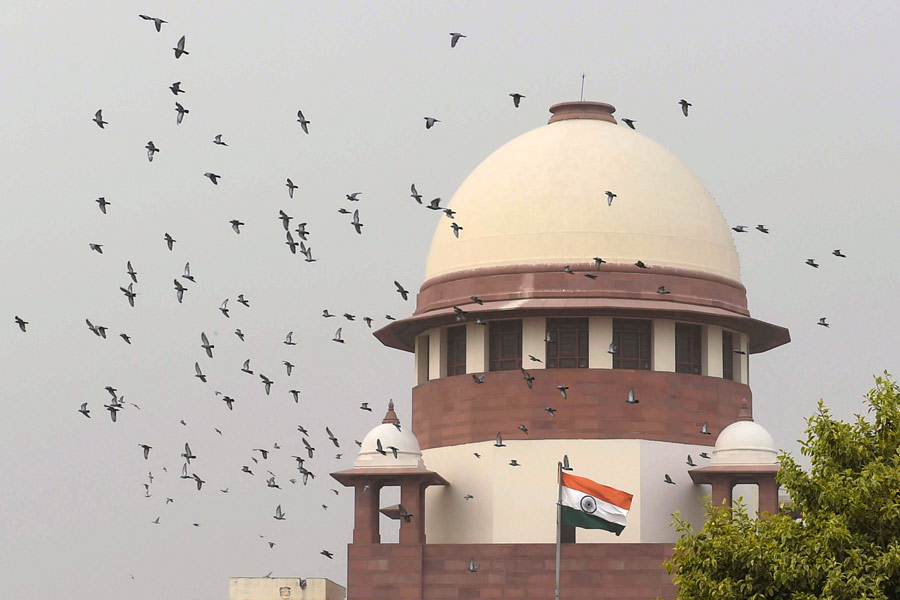The Supreme Court on Thursday acquitted a death row prisoner, who was convicted for allegedly killing his family members including a toddler daughter saying an accused cannot be convicted on mere suspicion.
A bench of Justices B R Gavai, Prashant Kumar Mishra and K V Viswanathan rejected the testimony of the convict's neighbour who had allegedly witnessed frequent quarrels between the man and his family members -- mother and wife.
"It is settled law that suspicion, however strong, cannot take the place of proof beyond reasonable doubt. An accused cannot be convicted solely on the ground of suspicion, no matter how strong it is. An accused is presumed to be innocent unless proven guilty beyond a reasonable doubt," the bench held.
The bench, therefore, set aside the death penalty verdict stemming from the judgments of the trial court and Bombay High Court. Dealing with the testimony, the top court pointed out a six-day delay in recording of the neighbour's statement from the day of the incident besides noting that there was no one to corroborate it. The apex court further observed that the testimony did not prove if the neighbour had witnessed the incident.
In the absence of the witness' testimony, the case would be of circumstantial evidence, it added. "It can thus clearly be seen that it is necessary for the prosecution that the circumstances from which the conclusion of guilt is to be drawn should be fully established," noted the top court.
The apex court, however, doubted the recovery of the alleged murder weapon, a hammer, from the convict pointing out the manner in which it was recovered. "It is also difficult to believe that, in the flowing water (stream of a canal) where two swimmers were required to find out the incriminating material, the said article would remain at the same place after three days (of the incident)," it said.
The top court also rejected the motive attributed to the convict behind the crime by the prosecution. Vishwajeet Kerba Masaklar, hailing from Maharashtra's Pune district, was awarded death sentence for allegedly killing his family members after they objected to his will to marry another woman. According to the neighbour's testimony, he had decided to divorce his wife.
On October 4, 2012, Masalkar had informed the police control room of a robbery at his house and that his mother, wife and daughter had been killed and some cash and jewellery items had been stolen. The police, however, arrested him for the murders.
Except for the headline, this story has not been edited by The Telegraph Online staff and has been published from a syndicated feed.










